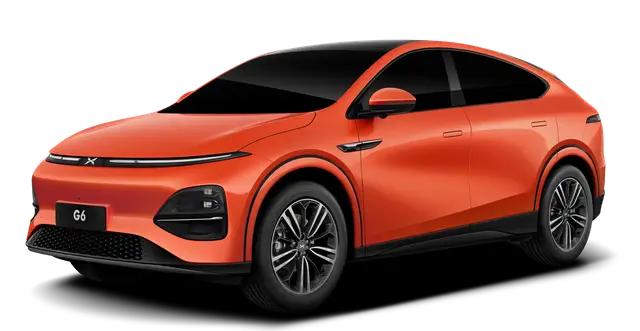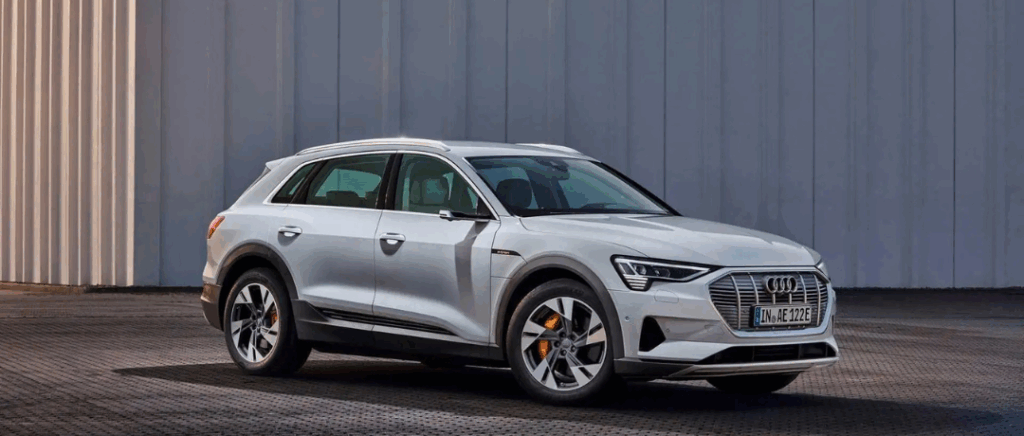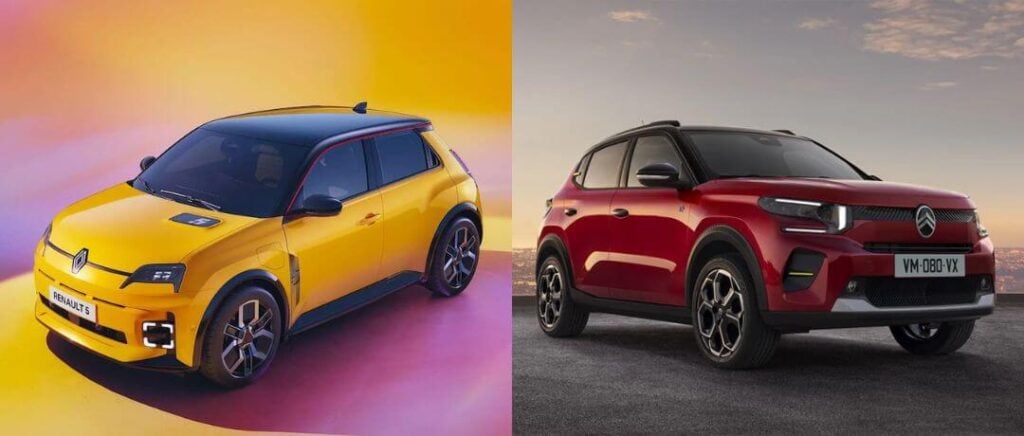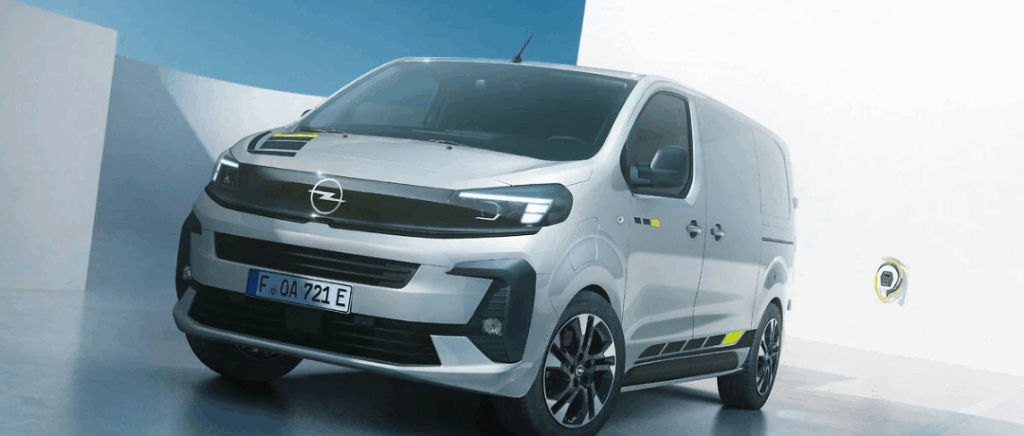1. Electric cars don't have enoughrange
In 2019, the average number of kilometers travelled per French person was 12,223 kilometers. This corresponds to around 35 km per day per French person. Figures for 2020 are not relevant, due to traffic regulations. Even the electric car with the smallest range (the Citroën AMI has a range of 70 km) is capable of covering this distance without the risk of breaking down en route.
Even in the 90s, electric vehicles had sufficient range to make these daily journeys. Citroën's famous J5 van came out in an electric version in 1989, with a range of 70 km too!
Whether it's a city car, like the BMW i3or an SUV, like the Kia Niro EVtheir range is between 350 km and 450 km, enough for some great outings! We've also thought of the adventurers who want even more freedom, who can opt for the Tesla range, with its long range of 610 km (WLTP) for the Tesla Model S491 km for the Tesla Model 3 and 505 km for the Tesla Model Y... So you can visit the birthplace of wine and take advantage of the charging stations offered by the city of Bordeaux!
2. Electric cars are expensive
The average cost of an electric car is €30,000. However, for high-performance models like the Dacia Springyou can become the owner of an electric car, with a range of 230 km, for less than €20,000!
You can also benefit from these vehicles through leasing offers. Depending on your needs, you can opt for a LMD, LLD or LOA.
It should also be borne in mind that recharging costs around 2 €/ 100 km with home recharging, whereas the average cost for a petrol car is €8.4/100 km.
And the savings don't stop there! Indeed, with the ecological transition at the heart of current debates, the French government and local authorities have introduced subsidies to help reduce the real cost of your electric car. You can benefit from :
- from conversion premium,
- from environmental bonus (can be combined with the conversion bonus),
- regional aid...
Also noteworthy is Emmanuel Macron's plan to offer an electric car for €100/month.
Beev helps you financing your projectDon't hesitate to contact us, we're here to help!
3. Electric cars are not so eco-friendly
First and foremost, we need to be careful about confusing direct emissions with total emissions. Indeed, in most cases, the data on electric cars include emissions produced downstream and during use, whereas for combustion-powered vehicles, direct emissions (tailpipe) are more often taken into account. Comparing these data, which are not based on the same elements, may lead us to believe that electric vehicles are not so clean.
As a result, when we take into account emissions from extraction, transport, use, recycling... On average, electric cars emit 100 g of CO2/kmhalf that of internal combustion vehicles, which emit 200 to 250 g of CO2/km! What's more, between 2016 and 2030, thecarbon footprint of electric vehicles could fall from 25% to 20%.. Bearing in mind that by 2035, the sale of petrol and diesel vehicles in France will be prohibitedthis offers great prospects for our electric cars!
4. Electric cars are slow
A prejudice that could offend our famous American manufacturer Tesla, which offers us a Tesla Model S reaching 100 km/h in 3.2 seconds! And our electric city cars have nothing to envy when it comes to such performance, take the Peugeot e-208 for example, which reaches 100 km/h in 8.1 seconds.
What's more, these vehicles boast a special feature that makes such performance possible: the absence of a clutch. In fact, without this pedal to shift gears, you gain in fluidity and avoid possible jerks between gear changes. As a result, your driving experience is more pleasant, and you pick up more quickly, making you more competitive.
Take a look at our article on electric car tests !
5. Batteries do not last long and are not recycled.
Contrary to popular belief, the battery of an electric car has a lifespan of between 10 and 20 years, which is reassuring news! While you're waiting for these decades to pass, a few simple everyday gestures (eco-driving, regenerative braking, etc.) can help you tosave your vehicle's battery.
As far as recycling is concerned, the progress we have made means that, on average, between 95 and 98% of the materials making up a battery can be extracted and recycled. Recovered materials are sorted and recycled as far as possible to improve our environmental impact. What's more, European regulations require that a minimum of 50% of the materials contained in a battery be recycled, with some rare metals such as lithium, cobalt, nickel and copper being 90% recoverable. Electric car battery recycling is true!
Discover several models of electric vehicles available for quick delivery!
6. Batteries take too long to charge
It all depends on where you're charging your car, and which charging station you're using... What's more, if you compare the time it takes to charge your car at home with a charge from the the Terra 360charging station, which recharges all vehicles in 15 minutes, yes, the charging time will seem long.
As a rough guide, for home recharging with a reinforced socket or with a Wallboxtakes between 3 and 15 hours to recharge, giving you a restful night's sleep while you wait for your vehicle to recover its energy.
In terms of charging stations their charging capacity is equivalent to that of the Wallboxthat is, two to three times faster than your reinforced socket!
Pour finir, vous avez la possibilité de recharger votre véhicule sur les autoroutes, équipées de bornes de recharge rapides, pour continuer votre trajet sereinement. Grâce à ces bornes, vous pouvez recharger 80% de la batterie en 20 minutes ! Tesla a également mis en place des superchargeurs pour tous les conducteurs de Tesla, qui permettent de recharger rapidement (< 30 minutes) votre véhicule, tout en bénéficiant d’une recharge gratuite !
Read also: The 10 best charging stations on the market.
7. Electric cars are expensive to maintain and repair
This myth about the price of electric car repair/maintenance also stems from common confusion. It's true that in the first year of owning your electric vehicle, possible repair or maintenance costs tend to be higher. However, because of their performance, electric cars are less likely to break down or require as much sustained maintenance as a combustion-powered vehicle.
The composition of electric cars, with fewer parts inside the vehicle, means that maintenance procedures are lighter. Fewer parts are in motion, which considerably reduces the risk of wear and tear leading to repairs.
What's more, maintenance costs for an electric vehicle are estimated at €800/year, compared with €1,000/year for a combustion-powered vehicle.
Read also: The profitability of an electric car.
8. Without an established recharging infrastructure network, electric cars won't be practical
According to the national barometer of charging infrastructures open to the publicconducted jointly by Avere France and the French Ministry of Ecological Transition, there were 57,732 charging points open to the public in France on March 31, 2022. It's worth noting that most (55%) of these charging points have a power rating of 22 kW, the same as a Wallbox. We're reminded of the speed of these charging points !
In addition, it's important to specify that most recharges are done at home, and that coming back precisely to the first point addressed, your charged electric car in the morning will enable you to get to work without a break.
Beev offers you its charging stationwith 22 kW three-phase power, so you can enjoy a car that's ready to take on the day.
And more and more companies are providing charging stations for their employees and sometimes their customers.
For companies interested in installing charging stations, don't forget that Beev is there to help you with your project.
In one of our articles, we've put together for you 5 reasons to install charging stations on your premises !
9. The power grid could not support the recharging demand
By 2035, which will mark the end of petrol and diesel vehicle sales, there will be around 15.6 million electric vehicles. This would be equivalent to 34 TWh, or 7% of final electricity consumption, which raises questions about the capacity of our grid to support this increase.
Thanks to the progress already made, and still to come, in energy transition, France will be able to accommodate this additional demand. Indeed, the insulation of homes, along with a more power system flexibilityWe can be reassured that the consumption of electric vehicles will be reasonable in absolute terms.
This is all the more convincing, bearing in mind that the additional demand for millions of vehicles would not be met overnight, giving our network the chance to adapt as best it can without citizens having to pay a high price.
More and more businesses and private individuals are deciding toinstall photovoltaic panels to take advantage of the sun's energy. Thanks to this investment, not only are you saving money, but you're also doing something for the planet by benefiting from financial aid!
10. Electric cars catch fire a lot
Last but not least, electric cars are more likely to catch fire than combustion-powered vehicles. Whether it's a combustion or electric vehicle, engines don't like fire, but there are particular concerns about batteries. It's true that lithium batteries burn for a long time and need to be managed to prevent fire from spreading, but there's good news!
According to a study by the American insurance company autoinsuranceEZon average, 25 electric vehicles catch fire for every 100,000 sold, compared with 3,474 combustion vehicles for every 100,000 sold. Yes, today's car fleet is largely made up of combustion-powered vehicles, but once the proportionality is taken into account, the risk of combustion in electric cars is 60 times lower than in combustion-powered vehicles.
In conclusion, we've debunked "only" 10 myths in this article, but you can find others that have developed around electric cars. So it's worth taking the experts' advice on this one!
What do you think of this news? We'd love to hear from you!
































